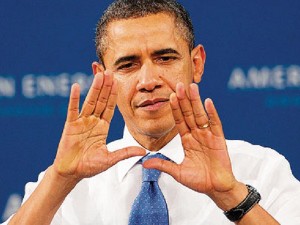WASHINGTON/LOS ANGELES—President Barack Obama enjoyed soaring support from Asian-Americans to win another term, a survey said on Wednesday, as voters elected new faces to Congress, including its first Hindu lawmaker.
A poll conducted for community groups found that 72 percent of Asian-Americans voted for Obama on Tuesday, a gain from the two-thirds support he won in 2008 and part of a major shift toward the Democrats over the past 20 years.
While small in total, Asian-Americans are the fastest growing racial group in the United States and made up 3.4 percent of the electorate on Tuesday, up from 2.7 percent four years ago.
Obama, the first African-American president, also enjoyed overwhelming backing from black and Hispanic voters, helping him offset a tilt by white voters toward his Republican rival Mitt Romney.
“It is without question that these three minority groups combined provided the margin of victory for Obama nationally but also in some key states,” said Matt Barreto, founding principal of the Latino Decisions research firm that carried out the survey.
Health care
The survey—whose finding on Asian-American support for Obama was similar to polls carried out for media outlets—said that the top issue for the community was the economy.
In one potential reason behind support for Obama, Asian-Americans were supportive of his signature legislative achievement, with 60 percent saying that the government had a role to play in ensuring access to health care.
At least five Americans of Asian or Pacific Island descent, all Democrats, won new seats in Congress. In Hawaii, 31-year-old Tulsi Gabbard was elected the first Hindu member of Congress.
Gabbard, who served in combat in Iraq, is of Samoan descent and her mother embraced the Gaudiya Vaishnava tradition.
“That Gabbard won while proudly espousing her Hinduism and voicing a willingness to be a strong voice for Hindu-Americans brings over 2 million Americans into the political landscape for the first time,” said Aseem Shukla, cofounder of the Hindu American Foundation.
Mazie Hirono, who held the seat that Gabbard won, was elected to the Senate. She will be the first senator who is Buddhist and the first who was born in Japan.
“Congress is slowly, but surely, starting to better represent America,” said Rep. Mike Honda, whose California district is the first on the US mainland with an Asian-American majority.
Non-white gay
In the Chicago suburbs, Tammy Duckworth, a Thai-born war veteran who lost most of her two legs in Iraq, beat controversial Republican congressman Joe Walsh.
In California, Mark Takano was elected as the first nonwhite member of Congress who is openly gay. Grace Meng became the first Asian-American member of Congress elected from New York City.
“It feels great. I’m proud to be the first Asian, I’m proud to be a woman,” the Taiwanese-American lawyer told NY1 television, calling for more women to serve in Congress.
Eight lawmakers of Asian-American or Pacific Island descent were reelected. In northern California, Indian-American doctor Ami Bera was locked in a race against Republican Dan Lungren that was too close to call.
Despite the overwhelming Democratic tilt of the Asian-American vote, the survey said that less than half of the community said it was contacted by campaigns.
“While Barack Obama’s narrative attracted Asian-American voters, Mitt Romney missed an enormous opportunity to offer a direct appeal to this group,” said Lisa Hasegawa, executive director of the National Coalition for Asian Pacific American Community Development.
Victims of recession
Her group and the Asian-American Legal Defense and Education Fund organized the poll, which surveyed 804 Asian-American voters in multiple languages and had a margin of error of 3.5 percentage points.
“Asian-Americans lost 54 percent of their wealth between 2005 and 2009, mostly due to the foreclosure crisis,” said Hasegawa. “Therefore, it is no surprise that Asian-American voters name the economy as their number one issue of concern or that they believe that government has a responsibility to help low-income households.”
“The results of the poll show that Asian-Americans remain a persuadable voting bloc that has yet to be fully engaged by either party” said Rep. Judy Chu, chair of the Congressional Asian Pacific American Caucus.
“As we shift from the election to finishing our business in this lame-duck session, this poll gives policymakers a better understanding of how Asian-Americans view policy priorities for our communities—from addressing the housing crisis to passing comprehensive immigration reform,” she said.
“Asian-Americans were hit hard during the recession—and this poll shows that they are focused on finding solutions to the economic downturn,” said Mike Honda, chair emeritus for the Congressional Asian Pacific American Caucus.
“This poll provides critical information about what’s important for Asian-Americans and should be used as a resource for elected officials as they develop policies that will have an impact on our communities.” With reports from AFP in Washington and Nimfa Rueda in Los Angeles
